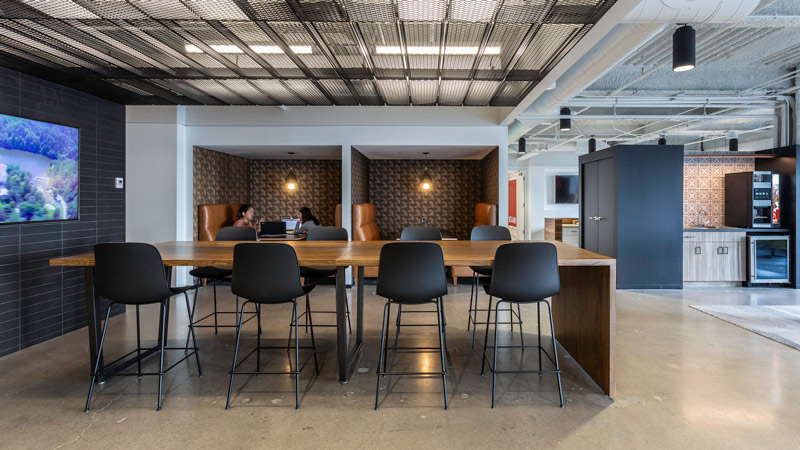Recent Articles
Lori McGilberry Joins LEO A DALY
Lori McGilberry, CHID, EDAC, NCIDQ, RID, joins LEO A DALY to lead and help deliver future-flexible environments that inspire wellness, health and hospitality throughout the dynamic delivery of care.
AIA Florida Honors 360 Rosemary with Statewide Award
360 Rosemary, a 20-story mixed-use project in West Palm Beach, has earned the prestigious Merit Award of Excellence for New Work from AIA Florida. Designed by LEO A DALY and Elkus Manfredi Architects, this LEED Gold-certified tower features stunning office spaces, retail areas, and urban community spaces, contributing to revitalizing the downtown area.
LEO A DALY Expertise Featured in July’s American School and University
The July issue of American Schools and Universities features an article from LEO A DALY’s Irena Savakova and Anya Grant, sharing the design successes for the University of Maryland’s Thurgood Marshall Hall.
LEO A DALY-Designed Bismarck-Burleigh Public Health Building Wins AIA Minneapolis Merit Award
The Bismarck-Burleigh Public Health Building, designed by LEO A DALY, has been honored with an AIA Minneapolis Merit Award.
20 Mass Earns Rethinking the Future Award, an International Honor
An international jury has honored the LEO A DALY-designed 20 Mass project with a Rethinking the Future Award, which recognizes excellence in global architecture.
“The Activity-Focused Office” published in Development
In NAIOP’s quarterly magazine, our team shares fresh insights into the evolving post-pandemic workplace

The following is excerpted from the Fall 2022 Development magazine article “The Activity-Focused Office.”
The modern office is in the midst of a transformation. With most knowledge workers opting out of the traditional five-day-in-office workweek in search of flexibility and hybrid work solutions, the shape, size and focus of the future office is rapidly changing.
CBRE’s Spring 2022 Office Occupier Sentiment Survey provides a snapshot of these changes and their impact on commercial real estate. In a survey of 185 tenant companies, 39% of respondents said they plan to expand their office portfolios over the next three years. That’s up from 29% the previous year, suggesting that fears about the “death of the office” have been exaggerated. Fifty-two percent said they plan to reduce their office space holdings, but only 8% say they will become fully remote. Seventy-three percent — the vast majority — plan to support hybrid work.
As of now, office occupancy is slowly beginning to rebound from the depths of the COVID-19 pandemic. NAIOP’s Office Space Demand Forecast, released in May, reports that vacancy rates have increased across the country for 10 straight quarters. However, Class A buildings with amenities designed to attract skilled workers are helping to stabilize the office market. Net office space absorption in the remaining three quarters of 2022 is forecasted to reach 46.9 million square feet and total 47.3 million square feet for all of 2023.
“While the office isn’t going away, traditional ways of working are.”
In April, JLL research showed that leasing activity across the U.S. climbed by 5.4%, the fifth quarter in a row of rising demand. The report cited “improved clarity surrounding return-to-office timelines.” Additionally, Moody’s Analytics indicates that the U.S. office vacancy rate in the first quarter of 2022 fell 18 basis points from the previous year to 18.1%.
While data shows that the office isn’t going away, traditional ways of working are. Hybrid work as the new normal means that tenant companies are coming to market with a new set of needs. From property developers and occupants alike, the most popular question seems to be: “How can I bring people back to the office?”
Read the whole article:
